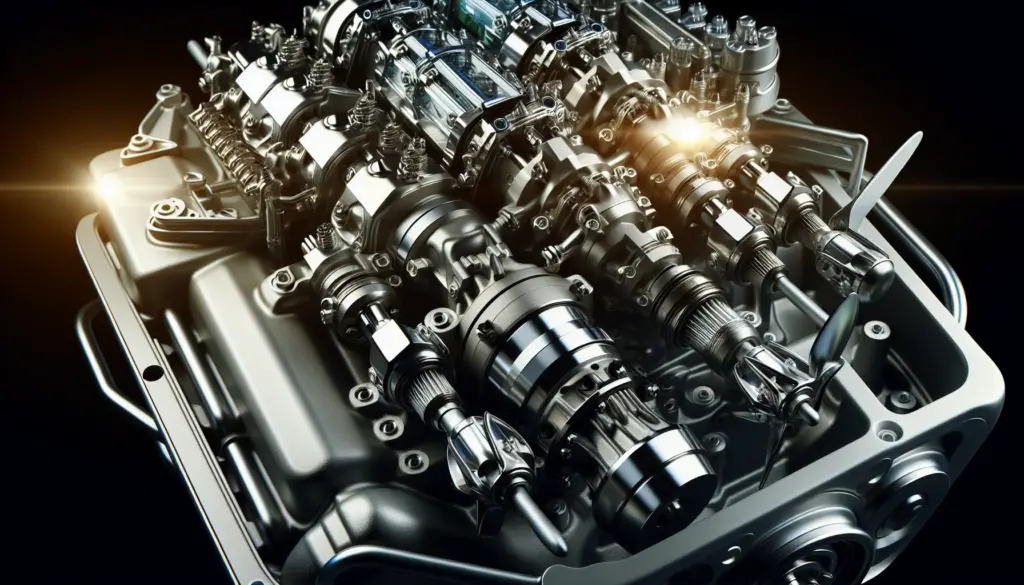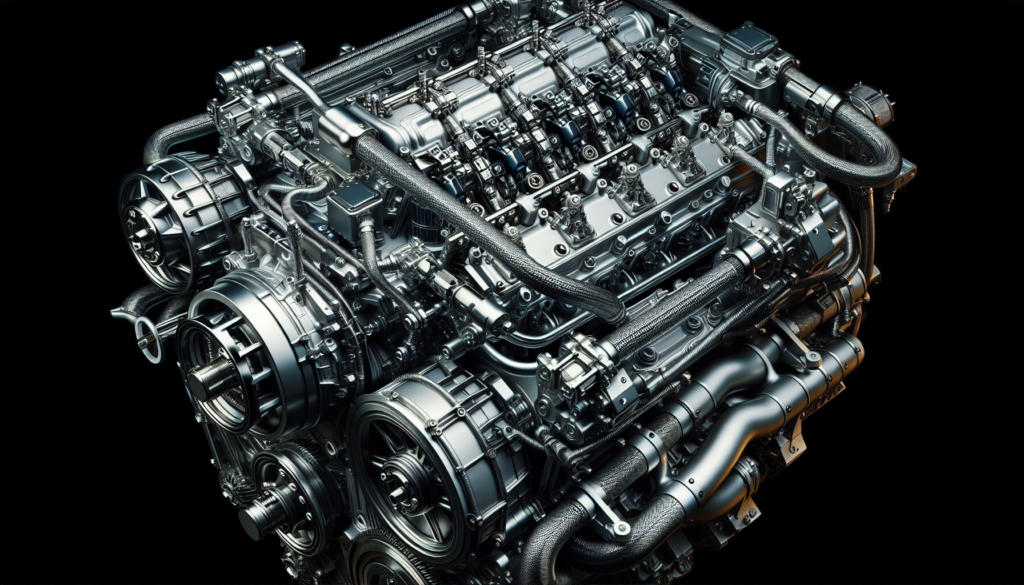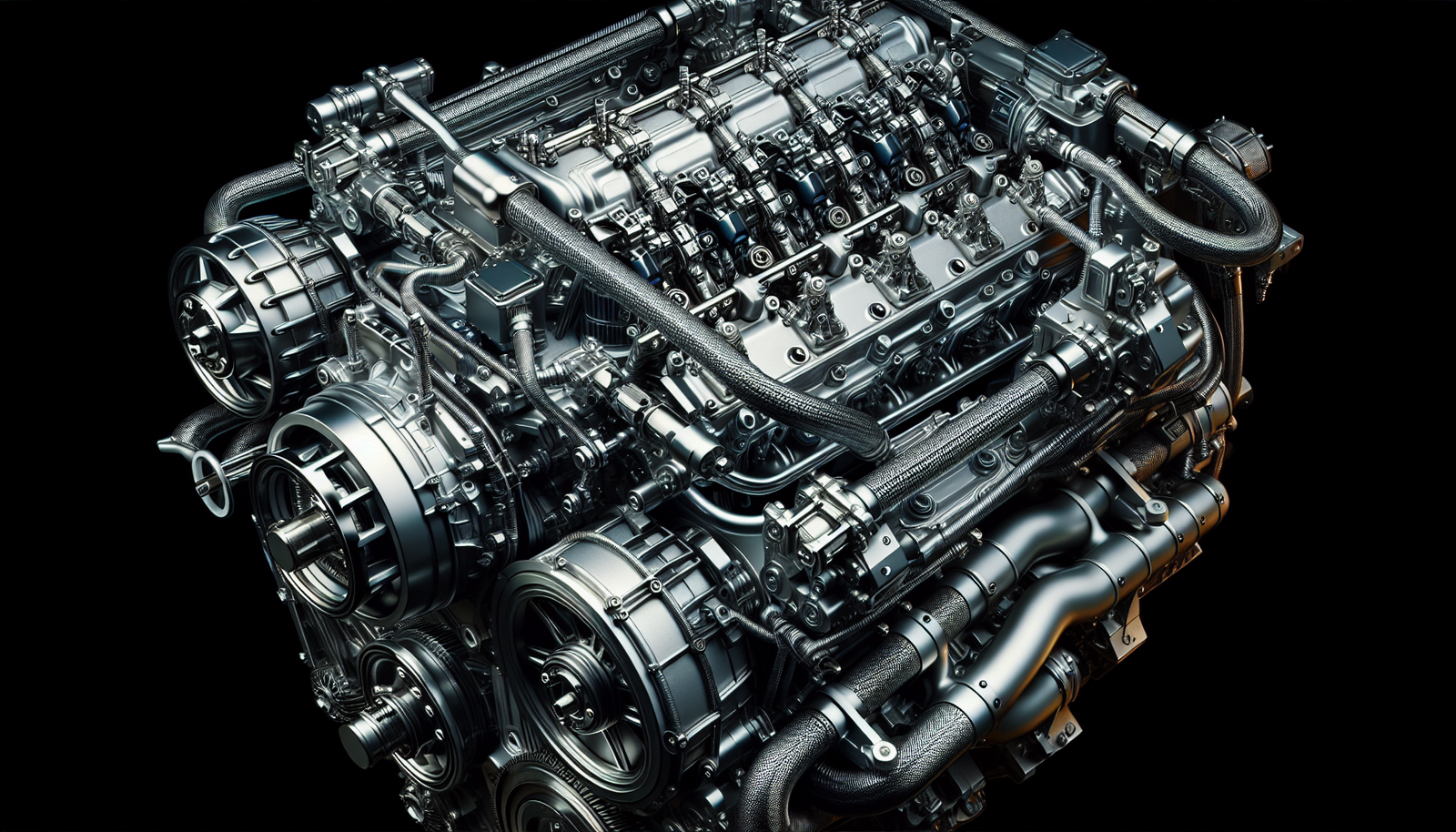Taking to the open water in a boat promises a sense of freedom and adventure like no other. However, the success of your maritime journey depends on the heart of your vessel, the boat engine. “What Are The Key Features To Look For In An Efficient Boat Engine?” gives you a comprehensive guide on the critical characteristics to examine when selecting your boat engine. This article aims to equip you with knowledge about engine power, Fuel efficiency, reliability, smooth operation, and even noise levels, all to ensure your sails are always smooth and hassle-free. Be ready to discover what makes a boat engine truly cut through the waves with efficiency and finesse.

Understanding Boat Engine Basics
Boating enthusiasts harp on one thing primarily: enjoy the mesmerizing beauty of the sea or any water body in peace and with utmost comfort. What’s a significant determinant of this joyous experience? The heart of your boat – its engine. It plays an exceptionally significant part in your overall boating experience. Understanding how your boat engine functions can greatly enhance your confidence on the water, ensure your safety, and even save you money in the long run.
The importance of boat engine efficiency
efficiency in a boat engine is crucial for a number of reasons. First and foremost, a more efficient engine translates into longer operational life and better performance. It uses less fuel, which results in lower emissions and reduced operating costs. Furthermore, an efficient engine offers more safety by reducing the likelihood of unexpected breakdowns, rescuing you from being stranded in the middle of the water. Therefore, knowing how your engine works and looking out for signs of inefficiencies can be beneficial in multitude of ways.
Different types of boat engines: Outboard, Inboard, Stern-drive, and Jet
There are primarily four types of boat engines: Outboard, Inboard, Stern-drive, and Jet engines. The outboard engine is the most common one, which is mounted outside the rear of the boat. They are simple to operate and easy to control, providing the boat with both propulsion and steering ability. The inboard engines, on the other hand, are located inside the boat and offer more power, making them suitable for larger boats. Stern-drive engines, also known as inboard/outboard engines, combine elements from both types. Lastly, Jet engines are less common and propel the boat by forcing a jet of water out the back.
Decoding Engine Specifications
Understanding engine specifications can seem daunting at first. However, this knowledge is extremely beneficial in making informed decisions and attaining the best overall performance from your boat.
Engine Horsepower (HP)
The engine horsepower (HP) is the measure of the engine’s power. More horsepower translates to more speed and potentially, more workload capacity. Remember, the engine’s horsepower should always align with the size of your boat to ensure safe and efficient performance.
Engine Displacement
Engine displacement refers to the total volume of all the cylinders in an engine. An engine with a larger displacement has bigger cylinders that can hold more air and fuel, thereby producing more power. Although high displacement engines are powerful, they tend to consume more fuel too.
Maximum RPM
RPM, or revolutions per minute, refers to how fast the engine is running. Maximum RPM indicates the highest speed that the engine can safely operate. Exceeding this limit can lead to overheating and potential engine damage.
Engine Weight
The weight of the engine is an important factor because a heavier engine increases the load on the boat, affecting its stability and speed. Therefore, striking a balance between the power and weight of your engine is crucial.
Fuel Efficiency
Meaning and Importance of Fuel Efficiency
Fuel efficiency indicates how much distance a boat can travel per unit of fuel consumed. It’s an essential indicator of a boat’s performance and operating costs. A fuel-efficient boat engine consumes less fuel for the power it provides, leading to reduced fuel costs, lower emissions, and extended cruising range.
Factors affecting Fuel Efficiency in Boat Engines
Numerous factors can affect your boat engine’s fuel efficiency. These include engine type and specifications, the weight of the boat, hull design, and weather conditions. Operating practices, such as properly tuning your engine, avoiding high speeds, and regular maintenance, can also remarkably increase fuel efficiency.

Reliability and Longevity
Importance of reliability in a boat engine
Reliability is undoubtedly one of the most critical characteristics of a boat engine. A reliable engine means fewer breakdowns and unexpected incidents, ensuring your safety on the water. It also means lower maintenance costs and a longer lifespan for your engine.
Factors contributing to Engine Longevity
engine longevity is influenced by multiple factors. These include the quality of the engine, routine maintenance, proper usage and good boating practices. Using good quality fuel and oil, ensuring the engine is not overloaded or overheated, and regular check-ups can significantly enhance the engine’s lifespan.
Noise and Vibration Levels
Understanding the impact of engine noise on boating experience
Excessive engine noise can greatly hamper your boating experience. It can make communication difficult, cause discomfort to passengers, and even create stress for marine life. Modern boat engines come with advanced noise reduction technology, making your boat trips more peaceful and enjoyable.
The role of vibration in engine performance
Engine vibration is not just about the comfort of your ride. It can also be an early sign of various engine problems such as misalignment, wear and tear, or a need for a tune-up. Minimizing vibration leads to smoother operation, enhanced performance, and improved lifespan of your engine.
Maintenance Needs and Ease
Why regular engine maintenance is crucial
Like any mechanical device, your boat engine requires regular maintenance to keep running at its best. Regular maintenance ensures efficiency, increases lifespan, enhances performance, and prevents minor issues from escalating into major repairs. In fact, regular maintenance could be the determining factor between a good fishing day and a bad one!
Ease of self-maintenance and professional servicing
With basic knowledge and skills, some boat engine maintenance can be done by you. This can save costs and give you a better understanding of your engine. However, certain tasks should be left to professional technicians, especially when dealing with more complex engines. Therefore, take into consideration the ease of self-maintenance as well as access to professional servicing when selecting your engine.
Advanced Technology
Modern tech features in boat engines
Technology has revolutionized the boating industry. Today, boat engines come with advanced features like fuel injection systems for better fuel efficiency, digital controls for precise steering, and noise-reduction systems for comfortable rides. Some engines even offer advanced monitoring systems to provide live updates on engine performance and potential problems.
The impact of technology on overall engine efficiency
Not only do these features enhance your boating experience, but they also significantly contribute to engine efficiency and reliability. For instance, by offering real-time data about fuel consumption, speed, and engine health, these technologies enable you to optimize the engine’s performance and anticipate potential issues, thus extending the engine’s lifespan.
Environmental Impact
Emission standards for boat engines
Awareness around the environmental impact of boating has led to the introduction of stricter emission standards for boat engines. These standards aim to reduce the harmful chemicals that engines release into the environment. Complying with these standards not only helps protect the environment but can also enhance your engine’s performance and fuel efficiency.
Choosing environmentally friendly boat engines
Selecting an environmentally friendly boat engine goes beyond just meeting emission standards. It also includes considering aspects like fuel efficiency, noise pollution, and the engine’s lifecycle. More and more boaters today are opting for engines with advanced emission control systems, fuel-efficient designs, and low noise emissions.
Price and Value for Money
Understanding the cost of boat engines
The cost of boat engines varies greatly depending on their type, size, specifications, brand, and additional features. While it might be tempting to opt for a less expensive engine, remember that the total cost also includes operating and maintenance costs over the engine’s life. Therefore, it’s essential to consider these factors when determining the cost of an engine.
Balancing price and engine features for best value
The best value for money doesn’t necessarily mean the cheapest engine. It’s about balancing the price with the engine’s features, reliability, lifespan, and operating costs. When choosing your boat engine, it’s crucial to assess what features are important to you, consider your boat’s size and intended usage, and then decide which engine provides the most value for your money.
Engine Brand and Warranty
The influence of brand on engine quality
The brand of the engine can tell you a lot about its quality. Reputable brands are likely to produce high-quality engines that deliver strong performance and longevity. They also often offer better customer service and have reliable networks for parts and servicing. While brand name shouldn’t be your only consideration, it can certainly play a role in your decision.
The importance of a good engine warranty
The warranty offered on an engine can greatly impact your peace of mind as a boat owner. A good warranty reflects the manufacturer’s confidence in their product. It also provides protection against unexpected repair costs, particularly for major issues. Therefore, consider the warranty period and terms before investing in a boat engine.
In conclusion, selecting an efficient boat engine involves understanding and evaluating a variety of factors. From digging deep into engine specifications, estimating fuel efficiency, noise, and vibration levels, to taking note of the environmental impact, your expenditure, and the brand reputation. A comprehensive inspection is necessary to ensure a happy and hassle-free boating experience. A well-made choice will definitely pave the way for many enjoyable hours on the water. Get set and sail!

